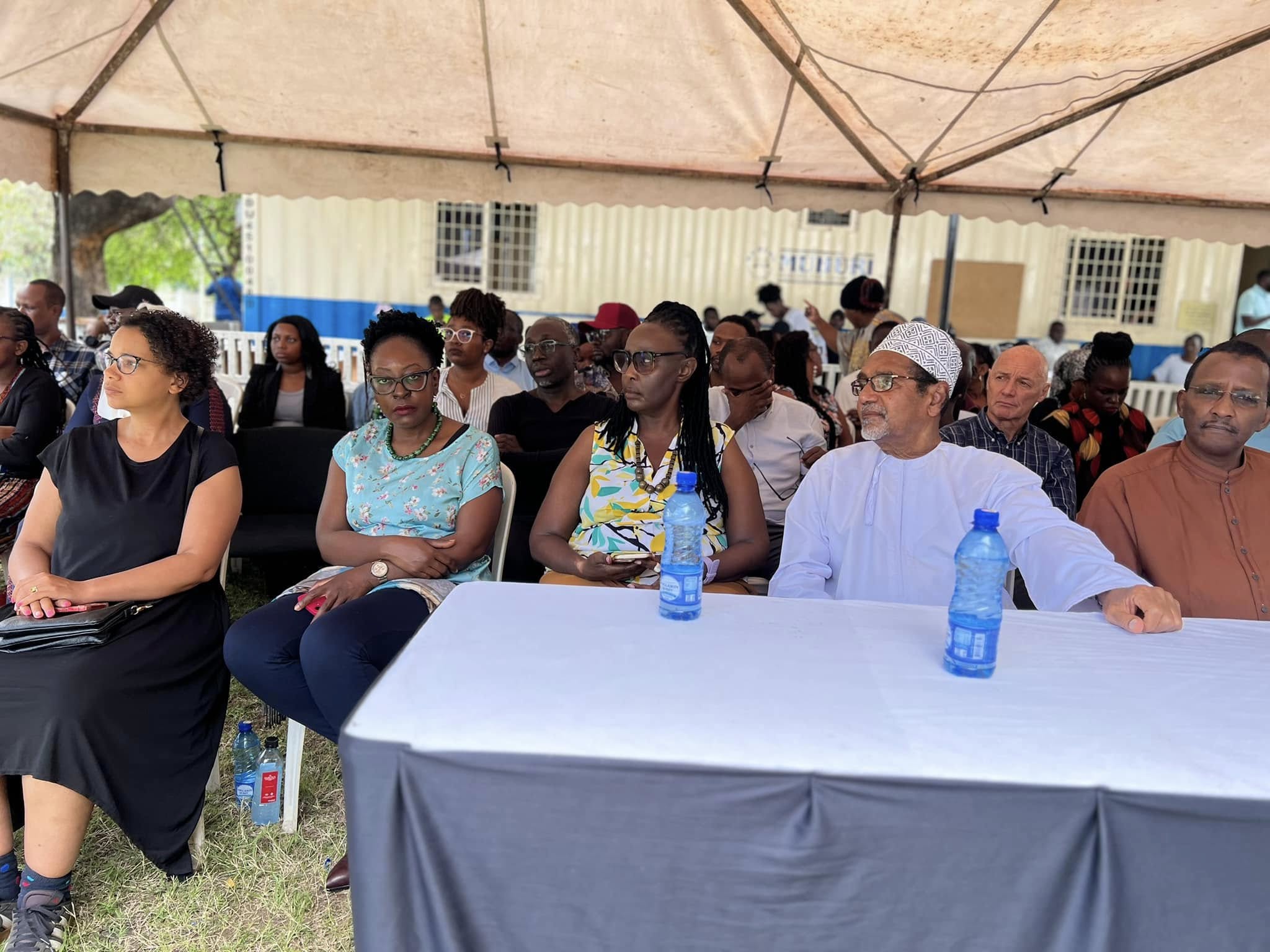
 Civil society bosses Nora Mbagathi of Katiba institute, Beverline Ongaro representing the office of UN Human rights, Wangeci Kahura of IMLU and Khelef Khalifa of MUHURI, alongside Ipoa chairman Isaac Hassan, during the day for victims of enforced disappearance held in Mvita, Mombasa on August 30/GORDON OSEN
Civil society bosses Nora Mbagathi of Katiba institute, Beverline Ongaro representing the office of UN Human rights, Wangeci Kahura of IMLU and Khelef Khalifa of MUHURI, alongside Ipoa chairman Isaac Hassan, during the day for victims of enforced disappearance held in Mvita, Mombasa on August 30/GORDON OSENCOVID-19 may no longer be an issue in the country today, but for Rose Waruguru, its memory and the mere sight of police officers still trigger untold pain and torment five years on.
It was a quiet evening in early 2020. Waruguru had just finished dinner with her children at their home in Mombasa. She let her son walk to a nearby house where he slept at around 7 p.m.
That
walk, she says, was the beginning of the end.
Her son encountered police officers enforcing strict curfew rules. They descended on him with batons, raining countless blows on his head.
He collapsed and remained motionless in the cold until a well-wisher found him and took him to another house before alerting his mother the following morning.
Waruguru shared her pain during the International Day of the Victims of Enforced Disappearances, organised by human rights organisations forming part of the Missing Voices coalition. The event, held on August 30, was attended by representatives from the police, the ODPP and Ipoa chairman Issack Hassan.
Waruguru said she never spoke with her son again.
He slid into a coma for a year before eventually dying.
“I took my son to the hospital and he was silent, motionless for more than a year. The wards were my home, and it took the help from human rights organisations such as IMLU to help me fight for the health of my boy,” she recounted, a cloud of sadness resting heavily on her.
“It is a pain that does not go away. I sleep with it, walk with it — it never departs. What’s worse is that no one was held accountable to answer for the death of my son,” she said.
For Agnes Nzilani, her family’s wound has refused to turn into a scar. Her brother was taken away by police officers in 2021 in Changamwe and the family still does not know whether he is alive or dead.
She said he was produced in court 14 days after his arrest and briefly released — but that freedom was short-lived.
“My brother got forcefully rearrested at court
premises in Mombasa and bundled into one of the three waiting cars,” Nzilani said.
“That was in 2021. Is he alive or dead? Did they kill him? Is he suffering somewhere in jail? We need answers. We are ready for any answers.”
“Do we bury an object to symbolise his killing? Or do we just keep searching?” she asked.
For Hussein Choya, the burden has lasted even
longer — since 2013. His brother was picked from his house while seated at the
dinning table with his children and wives, during a police crackdown over allegations he is a terrorist sympathiser.
Choya emotionally recounted how, unlike others who briefly appeared in court, his brother was not even given the chance. He has not been seen since.
“It is 12 years and I will never get tired of speaking up
for my brother. When you unlawfully disappear people and kill them for sport, what is the
difference between you and the terrorist groups?” he asked.
Choya said the responsibility of caring for his brother’s children fell on his shoulders, despite raising his own large family.
“Imagine the burden that the government gave me by taking my brother, who was hardworking and able to care for his family? It is unforgivable,” he said.
The lobbies, led by the International Justice Mission, said the stories shared in Mombasa are a reminder of the grave injustices faced by countless victims, survivors and families across the country.
IJM’s country director Vincent Chahale, who is also the chair of the Missing Voices coalition, said they stood together to honour the victims.
“We reflect on the pain endured by families of the disappeared and emphasise the urgent need for justice and accountability. We amplify their voices and renew our commitment to fighting for their rights and recognition,” he said.
“At IJM, our commitment to end enforced disappearances remains unwavering as we advocate for truth, justice and a future where everyone is safe and free from violence.”












